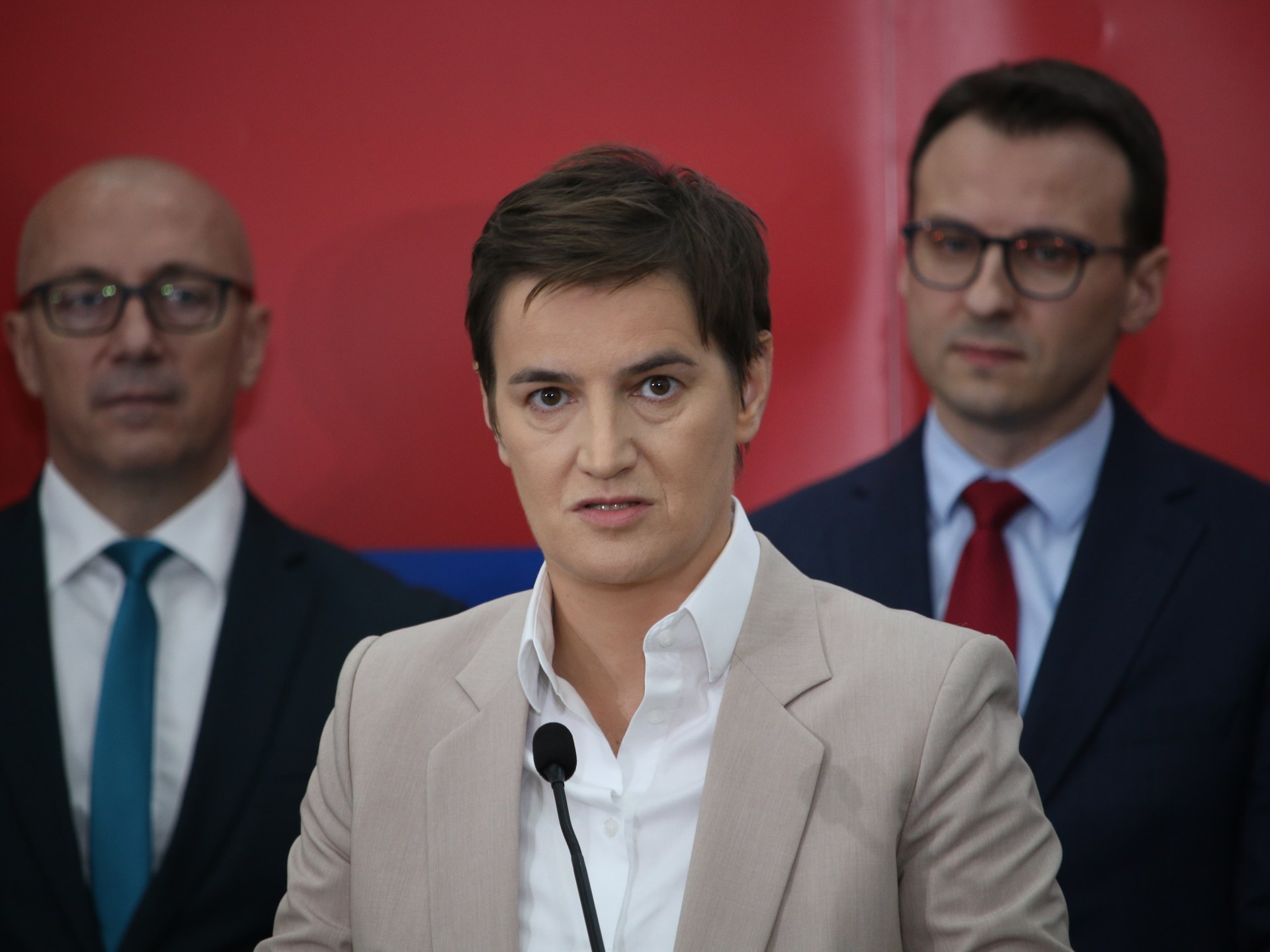Serbian Prime Minister Ana Brnabic warned yesterday, Wednesday, that the situation in Kosovo is "on the brink of armed conflict", at a time when the Serbs have erected barriers;
In a new escalation of tensions.
"We should all do our best to try to keep the peace. We are really on the brink of an armed conflict because of the unilateral actions of Pristina," Brnabic said at a news conference with Serbian NGOs.
This comes a day after the President of Serbia, Aleksandar Vucic, called on NATO to "protect" the Serb minority in the Republic of Kosovo, after receiving in the capital, Belgrade, the Commander of the Allied Joint Forces Command in Naples, Stuart Benjamin Munch, and the Slovenian Foreign Minister, Tania. Fagon.
And the Kosovo police announced on Saturday that groups of Serbs had set up new barriers in the town of Zvishan in the north of the country, and said - in a statement - that new barriers had been erected in the Berkshan neighborhood leading to Zvishan in order to continue to impede freedom of movement, and that this "is something that further complicates the lives of citizens in the north." the country.”
Tensions flared up between neighboring Serbia and Kosovo after the Pristina government attempted to ask Kosovo Serbs to replace old car plates coming from neighboring Serbia with plates from Kosovo.
The decision led to the withdrawal of the Serbs in Kosovo from all central and local institutions, but in late November an agreement was reached to end the conflict.
The former province of Kosovo, which is inhabited by an Albanian majority, declared its independence from Serbia in 2008, which is not recognized by Serbia.
Belgrade encourages the Serbs in Kosovo to challenge the local authorities, at a time when Pristina wants to extend its sovereignty over the entire province.
Several hundred Serbs living in northern Kosovo have been setting up roadblocks since December 10 to protest the arrest of a former Serb policeman, paralyzing traffic to two border crossings with Serbia.
A few hours after the barricades were erected, the Kosovo police announced that they had been subjected to 3 gun attacks.
The European Union police stationed in the area as part of the EULEX mission were also targeted with a stun grenade, which did not cause any injuries.
Recent tensions escalated in northern Kosovo, where more than a third of the 120,000 Kosovo Serbs live, when Pristina announced its intention to hold elections there in Serb-majority municipalities, after the resignation of all Serb elected officials and police officers in this region.
In the end, the Kosovo authorities postponed the polls until April.
The NATO-led peacekeeping force in Kosovo (KFOR) reinforced its presence in the north, sending additional troops and patrols, according to the force's commander, Italian General Angelo Michele Restuccia, on Friday in a statement issued by NATO.
He emphasized that KFOR has "all capabilities, including staff, to ensure a safe and secure environment and freedom of movement for all groups, everywhere in Kosovo."
Kosovo recently began deploying more police units in the north of the country, in a move criticized by the Serbian authorities, saying it was an attempt to invade the northern regions of the country inhabited by Kosovo Serbs.
On the other hand, Serbia asked "KFOR" last Friday to allow it to deploy its soldiers and police in northern Kosovo, without receiving a response so far, but Serbian President Aleksandar Vucic announced that he was "almost sure" that this request "will not be accepted."

